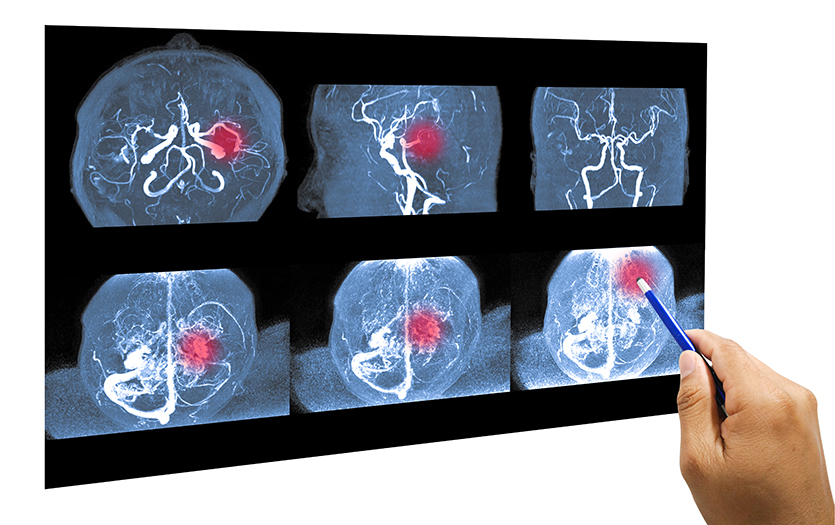
For those working to gain control over a substance use disorder, whether it be an addiction to alcohol or drugs, Timothy Kowaleski, DO, psychiatrist, Parkview Behavioral Health Institute, explained that an inpatient level of care can sometimes be the most effective route. He shared more about Parkview’s residential treatment.
When would you recommend inpatient treatment vs. outpatient or group programs?
There are different levels of addiction treatment. Residential care, which is the highest level of treatment, is for patients who have tried and been unsuccessful with less intensive levels of care. A residential program, where they're getting eight hours of group therapy, five to seven days a week, is the next step up and the most we can currently offer patients.
Insurance carriers are looking for those who have tried and struggled with a form of outpatient therapy or other interventions that meet their criteria. We also see individuals who have extreme consequences secondary to their substance use. This could be an overdose, lost relationship or criminal offense.
Patients must be medically stable to participate in residential treatment. Any detoxing would be done in a safe setting, such as a hospital, prior to their inpatient treatment.
What is involved in residential substance use treatment?
A big part of the program is group therapy. When you look at addiction, a significant piece of the puzzle is an inability to cope with life on life's terms. Many patients turn to substances because they can't handle the stress, or loss of control or complications that come up, so we teach them coping skills to help navigate these situations.
In addition to group therapy, residential treatment includes education, individual therapy and medication management.
Our residential treatment area has 30 beds, 15 for male patients and 15 for female patients.
How long is a typical stay for residential treatment?
Insurance typically approves a 28-30-day stay for inpatient treatment.
What are the biggest advantages to a residential treatment approach?
The ability to eliminate distractions is a major benefit of inpatient treatment. When you’re out in the world, you’re juggling work and a home and relationships, as well as addiction. With these residential programs, often you can’t even have a phone. You can just focus on the therapy and the treatment. You can focus on getting better. Eliminating all of the noise and distraction is part of the reason an inpatient approach works.
What does the transition out of a residential program look like for most patients?
You're going from the highest level of care, so in the next chapter, you’re going to step down to either a partial hospitalization program or an Intensive Outpatient Program (IOP)
Parkview Behavioral Health Institute does offer an IOP for substance use disorder. It includes three phases of treatment–education, therapeutic intervention and aftercare. Group sessions are held three days a week for three hours.
To learn more call 260-471-9440 or 800-284-8439.
It’s important that the transition be a gradual step down, where the patient starts to live their life again. Maybe they’re back to working a job or living at home or revisiting, but there’s still a fair amount of treatment involved. Even though they are out of the protective bubble of the facility, they are still working on processing what is occurring in their life.
How can a patient set themselves up for success as they transition out of residential care?
It varies greatly by individual. Statistically speaking, one in ten participants will stay sober. Studies show that the longer someone is at the appropriate level of care, the better the outcome.
We know that putting someone in rehab for nine months hasn't shown to result in better outcomes than stepping them down, which is why we have these different levels of care. The key to success is maintaining that connection to professional services.
Based on my professional observations, I can say that the people who are willing to do whatever it takes are the ones who make it. If I recommend an IOP or a specific program, the people who go all in and commit to seeing it through are most likely to find success.
A lot of patients complete rehab and they think they're fixed. And it's just not that easy. If you've been drinking or doing drugs for decades or years, 30 days doesn't eliminate the issue. People are apprehensive about stepping down to a lesser level of care because they think they’ve completed the residential program so they should get back to work and their life before treatment. But those are the patients who, unfortunately, are vulnerable to slipping back into old habits.
Again, the statistics aren’t great–just one in ten. But that doesn’t mean other people don’t go on to get sober. It can take people multiple attempts to change.
How can a patient’s family and loved ones support them throughout the treatment process?
I always recommend a family session. There are usually some resentments by the family member and things that need to be worked through, and that’s best done in a professional setting with a counselor who can guide them.
The hard thing for family members is that many of these people love the patient so much, it enables them. So having healthy boundaries is one of the keys to being a supportive person in a patient’s life.
Get help
The PBHI HelpLine is also available, 24/7, with expert team members who can direct you toward the proper resources. You can reach the HelpLine at 260-471-9440 or toll-free at 800-284-8439.
If you’re interested in learning more about residential treatment for a substance use disorder, there are a few avenues you can pursue. The Behavioral Assessment Center of Fort Wayne, P.C. (6026 E. State Blvd., Fort Wayne, Ind., 46815) can help. Call 260-749-8419 to reach them and learn more.



